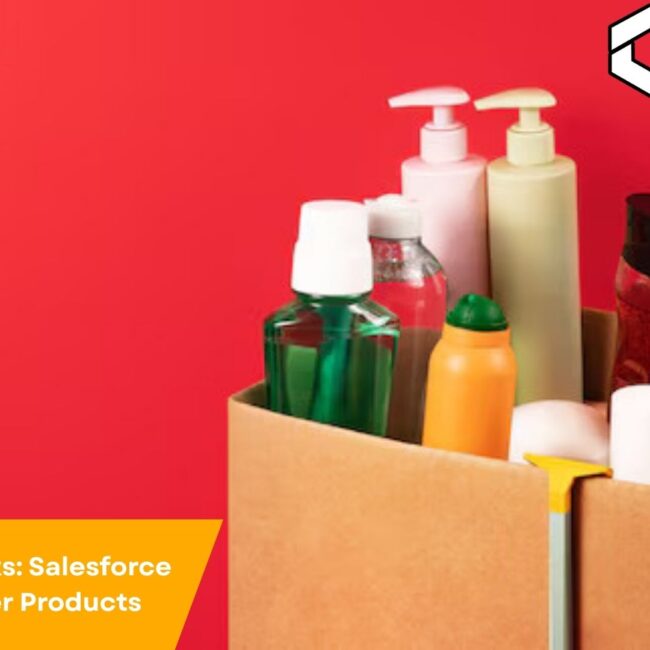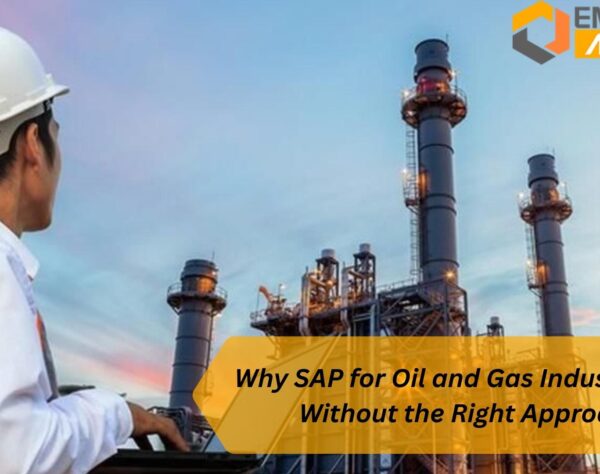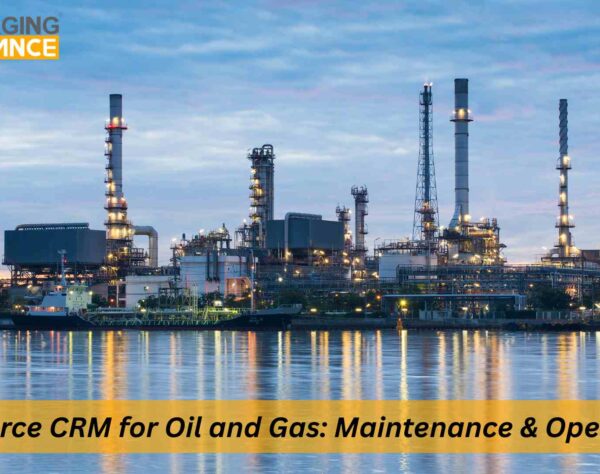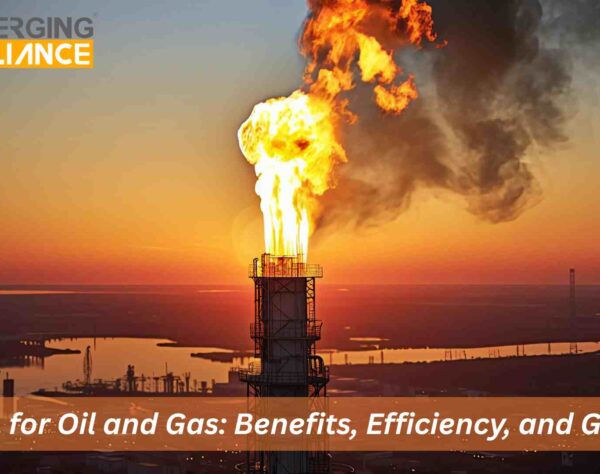
Next-Gen Oil and Gas Industry Runs on Salesforce
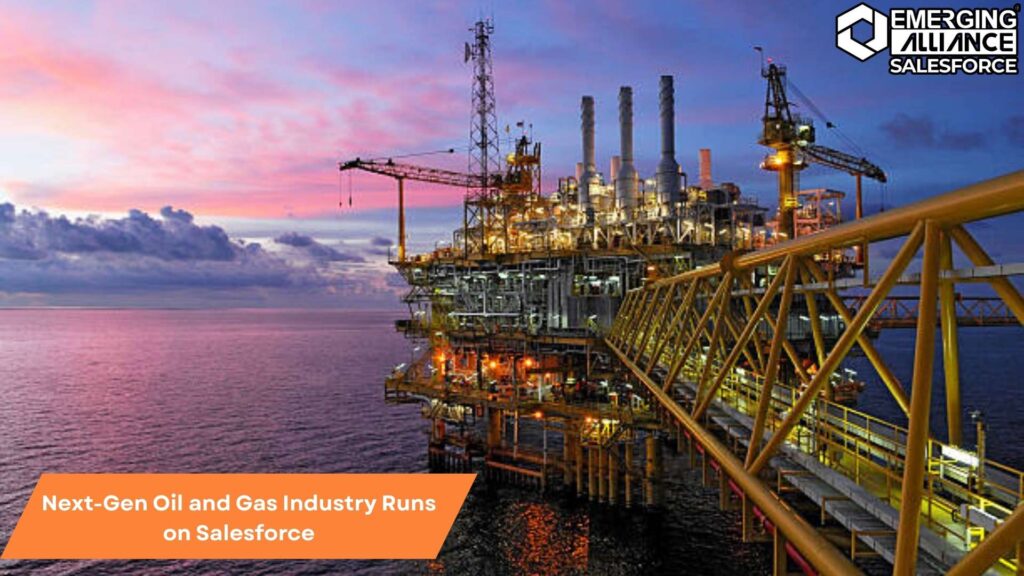
What Salesforce CRM Really Means for Oil and Gas Sector
The oil and gas industry, long known for its operational complexity, now faces a growing need to improve customer engagement, streamline communication, and embrace digital innovation. As global energy markets evolve, companies in this sector are looking to modernize how they manage stakeholders—from vendors and partners to customers. That’s where Salesforce CRM plays a transformative role.
Unlike ERP systems that focus on backend operations, Salesforce CRM software is designed to drive front-end excellence—enhancing customer interaction, sales pipeline visibility, field service efficiency, and data-driven decision-making.
Why the Oil and Gas Industry Needs CRM Now
The traditional approach to relationship management in the oil and gas industry is often fragmented, with outdated spreadsheets, disconnected systems, and siloed communications. As the industry shifts toward more customer-centric and agile models, CRM systems have become essential.
Salesforce CRM helps companies:
- Centralize customer data across touchpoints
- Track every interaction and project milestone
- Improve partner/vendor communication workflows
- Enable predictive analytics for client needs
These capabilities make Salesforce CRM software the go-to choice for upstream, midstream, and downstream operations alike.
Top Salesforce CRM Features for Oil and Gas Companies
The true strength of Salesforce CRM lies in its features—each tailored to improve business agility and strengthen customer relationships:
1. Unified Customer 360
Salesforce’s Customer 360 gives oil and gas companies a complete view of every stakeholder. Whether you’re managing B2B accounts or regulatory liaisons, all data is updated in real-time.
2. Intelligent Automation
From quote-to-cash automation to lead nurturing workflows, Salesforce CRM features are designed to minimize manual tasks and increase efficiency across sales and service teams.
3. Real-Time Analytics
Oil and gas leaders can make more informed decisions using customizable dashboards and KPIs. Track drilling success, equipment servicing cycles, or sales conversions—all in one place.
4. Mobile Field Service
Field crews get mobile access to customer details, service history, and real-time support, enhancing productivity and improving first-time resolution rates.
5. Custom App Building
With Salesforce’s AppExchange and Lightning Platform, teams can build custom apps to support environmental reporting, safety compliance, or asset tracking.
Salesforce CRM Integration with Third-Party Apps
The Salesforce CRM integration with third-party apps is one of its biggest strengths—especially in an industry reliant on data-heavy tools. Oil and gas companies commonly integrate Salesforce with:
- GIS Systems for real-time mapping
- SCADA software for monitoring equipment
- Document management tools for regulatory compliance
- Email and calendar apps to streamline communication
This seamless integration ensures that data flows smoothly across the organization, eliminating duplication and improving accuracy.
Salesforce CRM Benefits for Oil and Gas Industry
The shift toward digital transformation in energy markets is accelerating. Here’s how Salesforce CRM benefits oil and gas companies:
1. Better Customer Retention
By capturing and analyzing customer behavior and preferences, Salesforce enables proactive communication and timely service delivery.
2. Enhanced Team Collaboration
Sales, marketing, legal, and operations teams can access the same data from anywhere—breaking down silos and improving teamwork.
3. Faster Response to Market Changes
Thanks to dynamic dashboards and real-time alerts, decision-makers can respond quickly to fluctuations in supply, demand, and regulation.
4. Improved Regulatory Compliance
Track audit trails, manage documentation, and ensure safety protocols using configurable workflows and alerts.
5. Scalability
Whether your company is expanding upstream or launching a new refining unit, Salesforce CRM software scales with your business without adding complexity.
The Road Ahead: Digital-First Engagement in Oil and Gas
The energy landscape is evolving—faster than ever. Customers, partners, and regulators now expect instant access to accurate information. Salesforce CRM software empowers oil and gas leaders to deliver on these expectations through automation, insights, and unmatched customer visibility.
With its powerful Salesforce CRM features, deep integration with third-party apps, and industry-relevant tools, it’s not just about managing relationships—it’s about transforming them.
In a data-driven, highly competitive sector, Salesforce CRM gives oil and gas companies the edge they need to stay ahead.
FAQs: Salesforce CRM for Oil and Gas Industry
1. How does Salesforce CRM improve stakeholder engagement in oil and gas?
Salesforce centralizes all stakeholder interactions, making it easier to track, analyze, and optimize engagement across the value chain.
2. Can Salesforce CRM software integrate with oilfield monitoring tools?
Yes, Salesforce supports integration with SCADA systems, GIS platforms, and other oilfield monitoring apps.
3. What role does Salesforce CRM play in compliance management?
It automates document tracking, audit logs, and compliance workflows to reduce manual errors and ensure regulatory adherence.
4. Is Salesforce CRM useful for managing large-scale B2B relationships?
Absolutely. It offers account hierarchies, contract management, and tailored communication tools for complex B2B structures.
5. How does Salesforce CRM benefit field technicians in oil and gas?
Field teams can access service histories, submit reports, and resolve issues on-the-go using mobile CRM features.
6. Does Salesforce CRM help improve asset management?
Through integration with asset tracking tools, Salesforce provides full lifecycle visibility of critical infrastructure.
7. Can Salesforce CRM support sustainability initiatives in the energy sector?
Yes. Custom dashboards can monitor emissions, safety compliance, and sustainability KPIs.
8. How is Salesforce CRM different from ERP in oil and gas?
While ERP manages operations and logistics, Salesforce CRM focuses on customer relationships, service, and sales pipeline optimization.
9. What types of reports can Salesforce CRM generate for oil and gas leaders?
From sales forecasts to compliance summaries, Salesforce offers customizable reports and live dashboards.
10. Is Salesforce CRM adaptable for international oil and gas operations?
Yes, with multi-currency, multilingual, and multi-timezone support, Salesforce works seamlessly across global teams.



